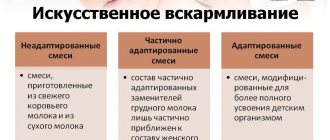Causes of constipation in nursing women
Constipation is considered difficulty with bowel movements for more than three days. Most often this occurs after trauma to the rectum during childbirth. An inactive lifestyle and an unbalanced diet also lead to problems with the movement of feces.
Symptoms of postpartum constipation in women
When caring for a newborn, mothers often tend to neglect their own needs, which causes nutrition to become irregular. By postponing going to the toilet, even though there is a urge to defecate—to expel feces from the body—the woman becomes constipated.
Signs that indicate a woman is constipated:
- no bowel movement occurs for more than 72 hours;
- the process of passing feces causes pain, feces are excreted in too small or very large portions;
- severe discomfort is felt in the left side of the abdomen or the entire abdominal cavity;
- there is no appetite, but there is nausea, flatulence and vomiting or belching;
- even after defecation there is a feeling that the intestines are full;
- cracks appear in the anus, accompanied by pain and bleeding.
Against the background of these all or individual symptoms, a woman feels tired, apathetic, or, conversely, irritable.
Common causes of constipation in nursing mothers include:
- intestinal reaction to postpartum hormonal levels. The production of progesterone during pregnancy for some time after childbirth affects peristalsis - the movement of intestinal contents. Conceiving and carrying the next child by a nursing mother resumes the synthesis of hormones, causing changes in the endocrine system;
- sleep disturbance and constant lack of sleep due to the attention-demanding newborn. Any stress negatively affects the process of stool leaving the rectum;
- diabetes mellitus and neoplasms in women’s organs;
- injury to the rectum during surgery or the passage of a child through the birth canal, hemorrhoids;
- stretching of the abdominal muscles or perineum;
- the presence of sutures in the vagina. A woman is subconsciously afraid to strain in order to avoid repeated ruptures;
- pressure exerted by the uterus, which has not yet returned to its natural size, on the pelvic organs;
- improper diet of a young mother. Food that is too fatty, salty or sweet disrupts bowel movements, just like, on the contrary, a meager menu for those who want to lose weight quickly after childbirth. It is important to maintain balance;
- taking certain medications prescribed by your doctor for postpartum recovery;
- insufficient amount of fluid to drink. For normal lactation you need to drink about 2 liters of fluid per day, there is nothing left for the intestines.
Let me remind you that milk is perceived by the body as food. And you can’t drink more than 200 ml of whole cow’s milk per day. I sometimes added it in small portions to herbal tea from a collection for nursing women, trying to drink more clean water. It is much healthier to consume fermented milk products, but try not to exceed the general norm for milk - 350–400 ml per day. My husband brought me kefir, fortunately, in the city stores there was easily a product that was no more than a day old. Contrary to popular belief about the positive effect of kefir on peristalsis, starting from the second day from production, this tasty fermented milk product has a strengthening effect on the intestines.
What are the dangers of constipation for mother and child?
The baby’s well-being depends on the mother’s. Surely you have noticed children's whims when their mother is in a bad mood, and constipation does not in any way contribute to positive emotions due to intoxication of the body. Toxic substances pass through breast milk to the baby, this is an important reason not to ignore the retention of feces in the mother’s intestines.
If the mother has constipation due to poor nutrition, then the child also begins to have intestinal problems
In a nursing woman, due to pathological conditions such as constipation, the production of breast milk may decrease or even stop altogether. Discomfort is caused by:
- feeling of heaviness in the stomach;
- bloating;
- lower abdominal pain;
- decreased appetite;
- decreased performance;
- headache;
- sleep disorders;
- bad breath;
- dry, inelastic skin;
- nervousness and anxiety.
The specific reasons are divided into anatomical and emotional, when the subconscious of a woman who has given birth reminds of recent painful sensations, interfering with normal bowel movements for fear of recurrence of pain.
Types of constipation in nursing women
Medicine identifies 2 main types of defecation retention in women in the postpartum period.
Spasmodic constipation occurs when the muscles of the anus tighten in fear that the sutures will come apart or the pain will recur. The process of relieving oneself is hampered by a tight sphincter.
Atonic constipation in women most often occurs after cesarean section. When the abdominal cavity is cut, the sensitivity of the nerves is disrupted and the intestinal muscles are weakened. Treatment with antibiotics and painkillers after cesarean section has a negative effect on peristalsis. The urge to defecate is felt very rarely, as a result of which the feces harden and pass with pain and bleeding.
If you are offered help with your child so that you can rest, thank and accept - children need cheerful and healthy mothers
What are the dangers of constipation while breastfeeding?
Constipation causes psychological and physical discomfort. It is more difficult for a woman to cope with household chores and walk with her baby due to constant pain in the rectum and lower abdomen.
Constipation in a young mother is always accompanied by unpleasant symptoms.
The woman is plagued by headaches, heaviness in the stomach, bloating, and flatulence. Therapists note: many women simultaneously complain of insomnia, overwork, nervousness, loss of appetite and tearfulness. The health of the mother affects the baby. He, like a mirror, screens the emotional state, becomes more capricious, inactive.
Long-term constipation leads to the accumulation of stool in the intestines. Against this background, the process of intoxication begins. Poisoning the body of a nursing mother with toxins also affects the baby.
Doctor Komarovsky about constipation in women during breastfeeding
The famous pediatrician believes that in the first months of life, colic in a baby is normal and natural. Of course, if they don't happen too often. The digestive system of a newborn goes through a period of formation, and there is no direct connection with the quality and quantity of mother’s milk. Therefore, you should not give up some fruits or vegetables that normalize intestinal function just for fear of colic in the child. Nutrition advice for a nursing mother is given by a local pediatrician after examining the baby.
Video: Dr. Komarovsky about infant colic
General recommendations and prevention
To prevent constipation during breastfeeding, a mother needs to follow a number of simple recommendations:
- Drink plenty of fluids. And not only as a prevention, but also in treatment. After all, when using medications, the water balance in the body is also disturbed.
- Stick to proper nutrition. Include fiber-rich vegetables and fruits in your diet. At first it is better not to eat them raw, and then start trying them with caution.
- Consume fermented milk products, but do not eat or drink low-fat foods.
- Move and expose the body to moderate physical activity.
- Keep calm, avoid stressful situations and depression.
If a nursing mother cannot cope with the treatment of constipation on her own, then she should consult a doctor. Since untimely treatment or its absence will lead to intoxication of the body, which can harm the baby, which no caring and loving mother should allow.
Nutrition for a new mother to prevent constipation
Most often, problems with peristalsis are observed in women in the first days after childbirth. To avoid this, you must adhere to the following rules:
- On the first day after childbirth, women in labor are prohibited from eating any food. It is recommended to drink still mineral water, to which you can add a small amount of lemon juice. You can’t limit yourself to fluids, since milk production has not yet begun at full strength, and water softens stool and makes it easier to remove them from the body.
- On the second day, you are allowed to add a little low-fat kefir and lean broth to the menu. Take a piece of chicken fillet or lean beef, put it in water, bring to a boil and cook for 5 minutes, then drain. Do this twice, and only on the third time, changing the water, cook until the end. The presence of rosehip decoction, weakly brewed tea and still water in the mother's diet is mandatory.
- On the third day, you can gradually introduce solid food - a small piece of boiled meat or hard cheese (up to 30 grams), a baked green apple and porridge cooked in water. Alternating fractional portions of solid food and the required amount of liquid in most women in labor reduces the risk of constipation. If a woman is predisposed to constipation before pregnancy and during pregnancy, the supervising doctor prescribes an IV with a laxative that is harmless to the mother and child, most often metoclopramide.
Drink more juices, which in the first 8 weeks are best diluted with clean water in a ratio of 1:3. At night, you can try beet juice with vegetable oil.
I don’t remember who recommended this recipe to me - for a glass of kefir (I took 1%) a tablespoon of sunflower oil. It washed out even more than I wanted. But always start with a small amount and watch the baby’s reaction. Also on the advice of the visiting nurse, I cooked rare porridge in the morning - alternating oatmeal and buckwheat - and instead of the usual butter, I seasoned it with a tablespoon of vegetable oil. A nursing mother's best friend is foods rich in fiber. Back in the maternity hospital they brought me baked apples, which I ate by the teaspoon. Then the kiwi and its small black seeds were very helpful, I peeled it only. Both times after giving birth, my godmother saved herself with a salad of boiled beets, seasoned with olive oil.
Forget about fast food and processed foods, fatty and sweet foods that absorb all the water from the intestines. Drinks with caffeine - black tea and coffee - are prohibited.
Please note that semolina porridge and boiled eggs have fixing properties, so you need to be careful with their presence in your menu. But these are not all products whose presence is undesirable in the postpartum diet.
Table: foods that nursing mothers can and cannot eat to avoid constipation
| Can | It is forbidden |
| Oatmeal, millet and buckwheat porridge. | Blueberries, persimmons, hard pears, quince and currants. |
| Kefir, cottage cheese and natural yogurt without additives. | Sweet baked goods made from wheat flour, white baked goods and pasta. |
| Fiber-rich vegetables and fruits - apples, beets, plums, pumpkin, cauliflower and others. | Rich meat broths. |
| Natural vegetable oils. | Potatoes, white rice and other starchy foods. |
| Dried prunes, figs, raisins, dried apricots. | Coffee, strong tea and jelly. |
| Fennel, caraway and anise infusions. | Grapes and juice from them. |
The remaining products are conditionally allowed if the time has come for their introduction into the menu of a nursing mother and there is no individual intolerance.
Photo gallery: products for the prevention of constipation in women during breastfeeding
It is better for nursing women to consume fruits and vegetables baked, preferably with the peel removed. Fermented milk products in the mother’s menu during lactation should be free of sugar and other additives. Nursing mothers need to replace wheat bread in their diet with grain bread that is healthier for the intestines. The benefits of natural vegetable oils in that they envelop the intestinal walls and help improve its evacuation function
Causes of postpartum constipation
The occurrence of the disease after childbirth is sometimes caused by improper behavior during pregnancy, but most often the causes of constipation have a very clear origin:
- Psychological reasons: - a sharp change in lifestyle, fatigue, lack of sleep and increased fatigue due to the appearance of a lot of trouble with the child; - fear of physical pain, especially if there are severe tears after childbirth or injury.
- Physiological reasons, including:
- an enlarged uterus that puts pressure on the intestines or rectum;
- non-compliance with the diet and consumption of solid, dry food;
- changes in muscle tone (stretch or weaken during childbirth);
- the influence of hormones, the production of which is under considerable stress after childbirth;
- constipation after cesarean section while breastfeeding.
The causes of constipation are varied: from psychoemotional to physiological. All of them can and must be fought.
Exercises to help relieve constipation in nursing mothers
Low physical activity leads to disturbances in peristalsis. Check with your doctor to see if all recommended exercises for defecation difficulties are allowed for your health.
To reduce the risk of constipation, it is useful to perform the following exercises:
- bicycle - periodically lie on the floor with your back and twist your legs bent at the knees at least 25-30 times, like pedaling while riding a bicycle;
- alternately pull up the legs bent at the hip and knee joints 10 times, pressing them to the stomach while lying on your back;
- lying on your stomach, inhaling air, raise your right arm and left leg and lower it as you exhale. Do the same with your left arm and right leg, repeating the entire cycle at least 10 times;
- cat - kneeling down, arms straight, arching your back, as if trying to squeeze through a gap under a fence. Then arch your back, like a cat when it sees a dog. Repeat 20–25 times;
- Gently stroke your stomach clockwise for 5-7 minutes while lying on your stomach.
For proper bowel function, at least half an hour of daily walking at an average walking pace is useful. For example, walking with a child. Yoga classes have a positive effect on a woman’s general condition.
Video: three best exercises for constipation
Diet for constipation
In most cases, you can cope with constipation after childbirth while breastfeeding by following a certain diet. Mothers should remember that a proper diet is not only the key to their health, but also ensures the baby’s well-being, and also contributes to successful lactation.
If a mother has a tendency to constipation, she should eat often, but in small portions, the food should be warm. It is best to eat liquid or semi-liquid foods. When you have the urge to defecate, you must immediately visit the toilet.
Recommended Products
The menu of a nursing mother should include the following products:
- a variety of soups: meat, dairy, vegetable;
- butter and vegetable oil;
- non-acidic fruits;
- dairy products;
- vegetables, steamed or boiled (chopped or pureed);
- bran bread, brown bread, dry biscuits;
- decoctions of dried fruits and fruits;
- marmalade, marshmallows, sugar;
- decoctions of herbs and rose hips;
- weak tea;
- fish and meat, steamed or boiled;
- cottage cheese.
Vegetables and fruits should be consumed either boiled, baked, or stewed. Raw foods take much longer to digest, which leads to difficulties with bowel movements. They can also negatively affect the baby’s body. Mom should introduce new foods into the diet gradually.
Prohibited Products
During lactation, a woman should not consume the following foods:
- buns and fresh bread;
- various sausages;
- beans and peas;
- semolina and rice cereals;
- cabbage;
- fatty meats;
- canned food;
- spices and hot sauces;
- carbonated fruit drinks;
- strong tea, cocoa, coffee;
- lard;
- jelly;
- nuts in any form;
- chocolate;
- sweets (such as cakes, pastries, puff pastries);
- instant food products.
Drinking regime
During lactation, a woman should drink enough fluid every day. If she does not suffer from edema, she should drink at least two liters of fluid daily. This can be water (about half of the total amount of liquid), compotes, juices, unsweetened fruit drinks.
To stimulate intestinal function, experts advise drinking a glass of boiled water on an empty stomach.
Treatment of constipation in women during breastfeeding
Self-medication is strictly prohibited. Be sure to ask your doctor about the possibility of using a laxative and which drug is appropriate in a particular case. Additional tests may be ordered if constipation does not go away for a very long time.
If constipation does not go away for a long time, in order to eliminate it, it is recommended to start consuming bran in its pure form or products containing it, for example, Eubicor. For treatment, it is enough to take it 3 times throughout the day. To get rid of constipation, a nursing mother should not drink laxatives, which are used by everyone. The result of such treatment of the problem will be abdominal pain and diarrhea in the baby.
Medicinal treatments for nursing mothers with problems with bowel movements
Constipation in nursing mothers is successfully combated by medications containing lactulose, which is not digested by the human digestive system. Lactulose populates the intestines with bifidobacteria and lactobacilli, providing a softening and acidifying effect on intestinal contents. The most popular are Lactulose Poly, Normaze, Portalac, Romphalac and Duphalac. They do not affect peristalsis, but have a laxative effect and facilitate the natural waste of feces.
Microlax and Linex are prescribed even for newborns, so they do not pose a danger if a small part passes into the baby's breast milk.
During lactation, some laxatives are allowed - Fortreza RomPharm, Forlax or Fortrans, which are based on macrogol. These products are produced in the form of powders for preparing a suspension.
Drink them only if constipation cannot be managed in other ways, and as prescribed by a doctor, 15 ml in the morning on an empty stomach.
The International Drug Formulary says that new mothers can use products containing senna to treat constipation. However, domestic doctors do not recommend treatment during lactation with Regulax, Gutalax or Sennilax. Their effect on the intestines of mother and child through milk has not been fully studied, so the best choice would be to avoid treatment with laxatives containing extract of senna, an Indian shrub plant.
Senna-based preparations are contraindicated for pregnant women and nursing mothers, as they can cause intestinal dystrophy
Suppositories for constipation in women during lactation
Suppositories, or scientifically speaking, rectal suppositories for constipation during the postpartum period should not pose a danger to the child. Therefore, doctors recommend those whose mechanism of action is based on local irritation. For example, glycerin suppositories or others that cause gas formation.
Glycerin suppositories have a mild irritating effect on the rectal mucosa and attract water from the intestines, softening the stool. They are especially good for ruptures of the perineal muscles, when pushing is contraindicated. By acting gently on the intestines, glycerin suppositories regulate the process of bowel movements.
But in case of acute inflammation, fresh cracks in the anus or acute hemorrhoids, suppositories should not be used.
Rectal suppositories with sea buckthorn help with cracks; they heal wounds and have a laxative effect thanks to natural sea buckthorn oil.
Drugs that promote gas formation are Ferrolax and Calciolax. Their ingredients release carbon dioxide, which swells the rectum. The act of defecation becomes easier after this. Rhubarb candles work in a similar way.
The drug Evacue is more expensive than others, but its effect on the intestines is as close as possible to natural gas formation and is safe for the baby.
Candles are inserted without strong pressure in the morning after breakfast. After this, it is recommended to lie on your side for 7–10 minutes, bending your knees, then walk around. The effect is achieved 45–50 minutes after administration.
The convenient shape of the suppositories makes it easier to insert them into the anus, but you need to lie down for a few minutes for them to begin to act in the rectum
Remember, laxatives are a first aid and not a complete solution to constipation. If you take them regularly, the effect will decrease and you will be forced to constantly increase the dosage. It is better to try to establish the exact cause by consulting a doctor, and start treating or preventing it by reviewing your usual lifestyle.
Sea buckthorn candles are the bomb, I tell you. Due to the fact that I pushed incorrectly, hemorrhoids began and cracks appeared. Going to the toilet was an ordeal, I even cried out loud in pain. Despite the fact that she gave birth without painkillers, without screaming even once. My husband, unable to bear my torment, asked the pharmacy for something other than Duphalac, and the pharmacist recommended suppositories with sea buckthorn oil. They saved me.
Enema for constipation for nursing mothers
Most doctors consider the use of an enema to be ineffective when the tone of the intestinal muscles is weakened. And sometimes an enema is even harmful, because it can worsen the situation with lazy bowel syndrome. The decision to use an enema should be made solely by the doctor observing the woman, and the enema should be administered by a nurse. At least for the first time after childbirth. If you often do an enema, you can disrupt the intestinal microflora, clearing it of beneficial microorganisms.
Herbal treatment for constipation in women during breastfeeding
Herbal therapy is allowed if the mother and child are not allergic to the components of the formulations. Try the following recipes:
- infusion of figs with milk - pour 2–2.5 tablespoons of dried figs into a glass of hot milk (or boiled water), cool and take 1 tablespoon four times a day. Fig infusion saturates the bodies of mothers and children with essential vitamins and helps speed up recovery after childbirth;
- infusion of anise, cumin and fennel - take 2 tablespoons of each ingredient and pour a glass of boiling water. Drinking a third of a glass of infusion three times a day 30 minutes before meals, you can improve the lactation process and get rid of constipation;
- Gooseberry decoction - pour one tablespoon of gooseberries (berries) into a glass of water, bring to a boil and cook for 5-7 minutes. Strain the cooled broth and drink a quarter glass 4 times a day.
Any treatment should be started with small doses, observing the child’s reaction to possible new components in breast milk. If you notice rashes or indigestion, look for another way to relieve constipation.
Medicinal treatments
If non-drug methods of control do not help, you can fight constipation during hepatitis B with the help of medications. These include laxatives and suppositories. But they should be used only for emergency relief of a woman’s condition. At the same time, the mother must remember that self-medication can harm the baby.
Laxatives
Constipation after cesarean section or after childbirth accompanied by ruptures is treated by prescribing laxatives. But only a specialist should select the appropriate medicine. Doctors usually prescribe the following drugs:
- "Lactulose". The drug is a soluble powder. The action of the medicine is aimed at stimulating intestinal function. The result is visible only after one or two days.
- "Duphalac". This is a syrup that contains lactulose and pure water. Lactulose is neutral for the digestive tract, as it is not broken down or absorbed in the intestines. The mechanism of its action is to increase the contents of the intestines due to water and further gentle cleansing. Duphalac introduces beneficial bacteria into the intestines, which help normalize the formation of feces. The drug does not work immediately.
- "Forlax", "Fortrans", "Traziner". The drugs are soluble powder that is diluted in water. The main active ingredient in such medications is macrogol. The principle of its action is to increase the contents of the intestines with the help of water. When taking such medications, the patient should drink at least 2 liters of water daily. The effect is noticeable after one or two days.
- "Fitomucil". This is a soluble powder containing plantain seeds and homemade plum fruits.
During lactation, you should not take medications made from senna leaf (Sennalax, Sinade, Triasen), as well as Bisacodyl, Dulcolax, Guttalax. These drugs help increase the tone of a woman’s intestines and can lead to colic in the baby.
It should be noted that laxatives can only be used for a limited time as they are addictive. Such medications can only be taken for emergency care of the patient.
Candles for constipation
For constipation during breastfeeding, suppositories can be used. In most cases, the doctor may prescribe the following suppositories for constipation after childbirth:
- Sea buckthorn candles. This remedy has a herbal composition and is harmless to the baby and mother, but is less effective than other medicines.
- Glycerin suppositories. They are considered a safe laxative, approved for lactation and pregnancy.
- Evacue candles. The drug is an alternative to an enema and works within 5-10 minutes.
- Microlax candles. The medicine is a ready-made solution of viscous consistency for microenemas. The effect occurs 5-10 minutes after application.
Nursing mothers should know that suppositories for constipation during breastfeeding cannot be used if there is any damage to the anus (wounds, cracks).
Enemas
Some women find that enemas can help relieve constipation. However, it is not. According to experts, enemas have a negative effect on muscle tone, which results in deterioration of intestinal function. Cases of suppression of the functioning of this organ have been recorded, resulting in the development of “lazy gut” syndrome.
A nursing mother can use an enema only in an emergency. At the same time, she should remember that for spastic constipation, only warm water (about 37-38 degrees Celsius) is used, which helps the intestines to come to a relaxed state. If the mother has atonic constipation, then cool water is used, which helps stimulate intestinal motility.
Remedies for constipation after childbirth
Medicines can eliminate constipation after childbirth as quickly as possible. The use of medications for stool retention is carried out according to an individually selected scheme.
There are 3 types of laxatives that are relatively safe for women after childbirth who are breastfed. They do not pass into breast milk and the mother's systemic bloodstream, so they do not harm the newborn.
The therapeutic therapy aimed at normalizing intestinal motility includes the following drugs:
- candles;
- enemas and microenemas;
- Duphalac.
Long-term use of laxatives for constipation after childbirth can be addictive. Between courses it is necessary to take breaks of 7-10 days.










